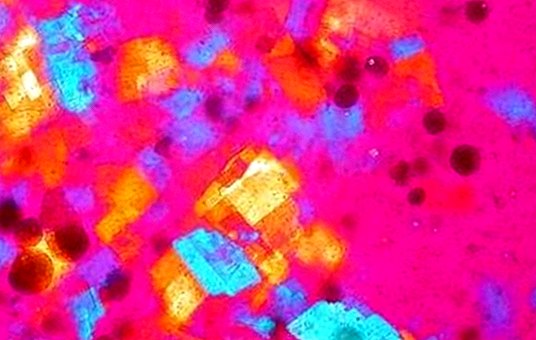Acidosis: what it is, symptoms and causes
With the term of acidosis, or more specifically metabolic acidosis, consists of a condition in which there is too much acid in body fluids. That is, it is a condition that occurs when our body produces or generates too much acid. It can also arise as a result of our kidneys not removing enough acid from the body. In this sense, we must bear in mind that there are two types of acidosis: the so-called diabetic acidosis, which occurs when known substances, such as ketones, acids, accumulate in our body (which occurs especially when diabetes type 1 is not well controlled), and hyperchloremic diabetes, the result of excessive loss of sodium bicarbonate from the body (very common when there is intense diarrhea).
There is also another type of acidosis, known as lactic acidosis, which is the result of the accumulation of lactic acid in the body as a result of certain unhealthy habits, such as drinking alcohol in excess or certain disorders and health problems. . Even this type of acidosis can appear by practicing physical exercise for a long time, which far from being beneficial is actually very harmful to our health.

Symptoms of acidosis
We must take into account that most of the symptoms of acidosis are actually caused by the disease or by the health disorder that is causing the onset of metabolic acidosis. Yes it is true that there is a clear symptom caused by this type of acidosis, and it is the appearance of fast breathing, coupled with hyperventilation, deep and agitated breathing. On the other hand, we can also mention the following symptoms:
- Discomfort in the bones and joints.
- Emotional problems: stress, nervousness, depression, anxiety and irritability.
- Lack of energy, chronic fatigue or exaggerated fatigue.
- Gastric disorders, in addition to vomiting.
- Heart failure and arrhythmias.
- Peripheral vasodilatation.
- Acute Pulmonary Edema.
In severe cases, it can cause loss of consciousness, and may even cause shock or death.
What are your causes?
The causes that can cause the appearance of acidosis can be really varied. The most common are the following:
- Drinking alcohol in excess.
- Practice physical exercise for a long time.
- Liver failure.
- Consumption of certain medications, such as salicylates.
- Intoxication with ethylene glycol, acetylsalicylic acid or methanol.
- Cancer.
- Convulsions
- Intense diarrhea
- Prolonged lack of oxygen
- Intense dehydration
- Renal disease.

Is there a treatment for acidosis?
We must bear in mind that Medical treatment for acidosis will depend on its cause, so that it will be oriented to the health disorder, illness or underlying condition that has caused its appearance. In some cases it is possible to administer sodium bicarbonate in order to reduce the acidity of the blood.
It is also very important follow a diet as varied, healthy and balanced as possible. Stands out at this point to opt for alkalizing foods, which help reduce acidity. On the other hand, it is convenient to reduce those acidifying foods:
- The best alkalizing foods: vegetables (cabbage, spinach, broccoli, borage, chard, carrot, radish, eggplant, celery), legumes (soy and derivatives), fruits in general, alkaline water, miso, honey and kefir.
- The most acidifying foods: certain beverages (alcohol, coffee and mate), processed products, refined sugar, industrial pastries, refined flour, saturated fats from animal meat, trans fats, milk and milk products and artificial beverages.

At the same time it is advisable practice physical exercise on a regular basis, between 30 to 40 minutes every day. What is not advisable is to practice it for a longer time (for example, beyond 60 minutes), since in this case, lactic acidosis may appear.
Determined nutritional supplements They can be useful, such as calcium, magnesium or potassium carbonate, in addition to certain vitamins, such as the B vitamins (especially B3, B5 and B6).
Images | Jason Scragz / Bobbi Bowers This article is published for informational purposes only. It can not and should not replace the consultation with a Physician. We advise you to consult your Trusted Doctor.


